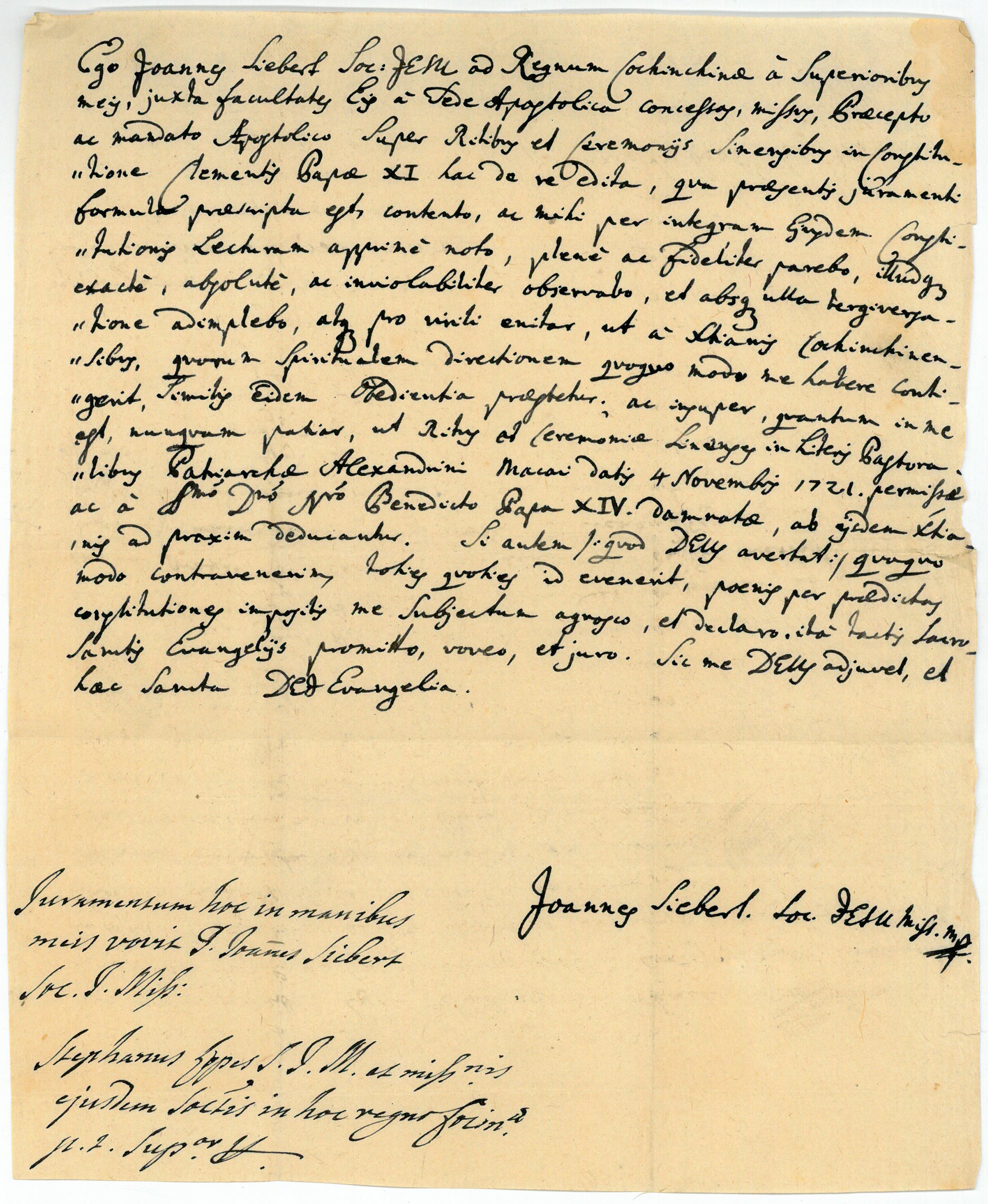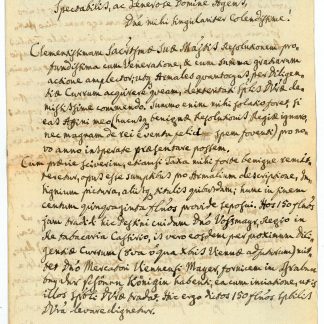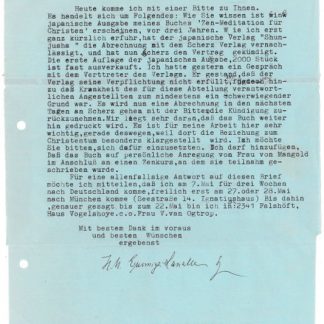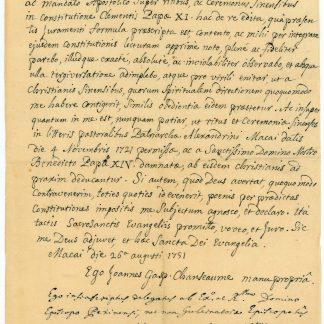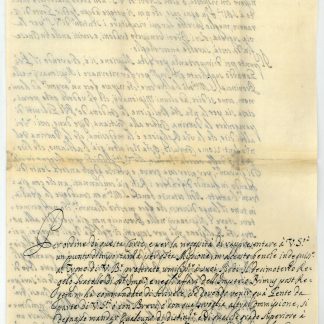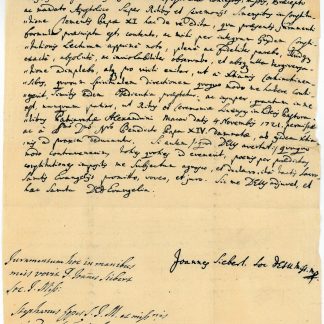A Bohemian Jesuit and mathematician at the Nguyen Court in Hue
Autograph document signed. Co-signed by the Jesuit provincial of Japan, Estêvão Lopes.
8vo. 1 p. In Latin.
€ 3,000.00
An oath renouncing the practice of the Chinese rites, taken by the prominent Jesuit as required by the Papal Bull "Ex Quo Singulari" (1742). The oath was sworn on the Bible, and a form signed in one's own hand ("manu propria") had to be produced as evidence. Most of these documents are co-signed by church officials or senior friars as witnesses to an oath sworn in their presence ("in manibus meis"), in this case the Jesuit provincial for Japan, Estêvão Lopes (1693-1766).
Johann Siebert was originally destined to join the Jesuit China mission in a group of Bohemian Jesuits that included Florian Bahr, reaching Macau in 1739. Both Siebert and Bahr were protégés and correspondents of the German countess Maria Theresia von Fugger-Wellenburg (1690-1762). Two years after their arrival in Macau, Siebert was sent to Hue, the capital of Ðàng Trong, as the Nguyen Lord Vo-Vuong (1714-1765) had requested a European scientist for his court. Siebert was highly valued for his mathematical and medical skills, which led to his being styled court mathematician, physician, and first-ranking madarin. Although Vo-Vuong held Siebert in high esteem and enjoyed the Western music that he introduced to his court, only five years after his mandarin's untimely death he banned all missionaries and Christianity from Cochinchina.
The Portuguese Jesuit Estêvão Lopes had reached Cochinchina as a missionary in 1721 and in 1746 was promoted to provincial of the Japan province, which included Tonkin, Ðàng Trong, Makassar, Cambodia, and Hainan since the expulsion of all missionaries from Japan in the 17th century. Lopes was recalled to Rome in 1751 as designated procurator of the Society of Jesus but could not continue his journey from Lisbon due to an illness. In 1759 he was arrested as a prominent Jesuit, and he died in prison on 15 December 1766.
During the early years of their mission to East Asia, the Jesuits led by Matteo Ricci accommodated Catholicism to Chinese customs and Confucian practice in important ways, both for political reasons and in the hope of attracting more converts. Criticism of this syncretism is as old as the Chinese rites themselves, and Ricci's immediate successor Niccolò Longobardo attempted to change course, which led to his replacement as provincial. When Dominican and Franciscan missionaries entered China, they reported to Rome critically on the Jesuit practices. A first condemnation was decreed by Pope Clement XI in 1704 and confirmed in the 1715 Bull "Ex Illa Die". In "Ex Quo Singulari", Pope Benedict XIV re-affirmed "Ex Illa Die" and required all missionaries in East and South-East Asia to take the oath renouncing the practice of Chinese rites and similar accommodations to local beliefs and religious practice.
A transcription and translation of the document are available on request.
With minor tears.

